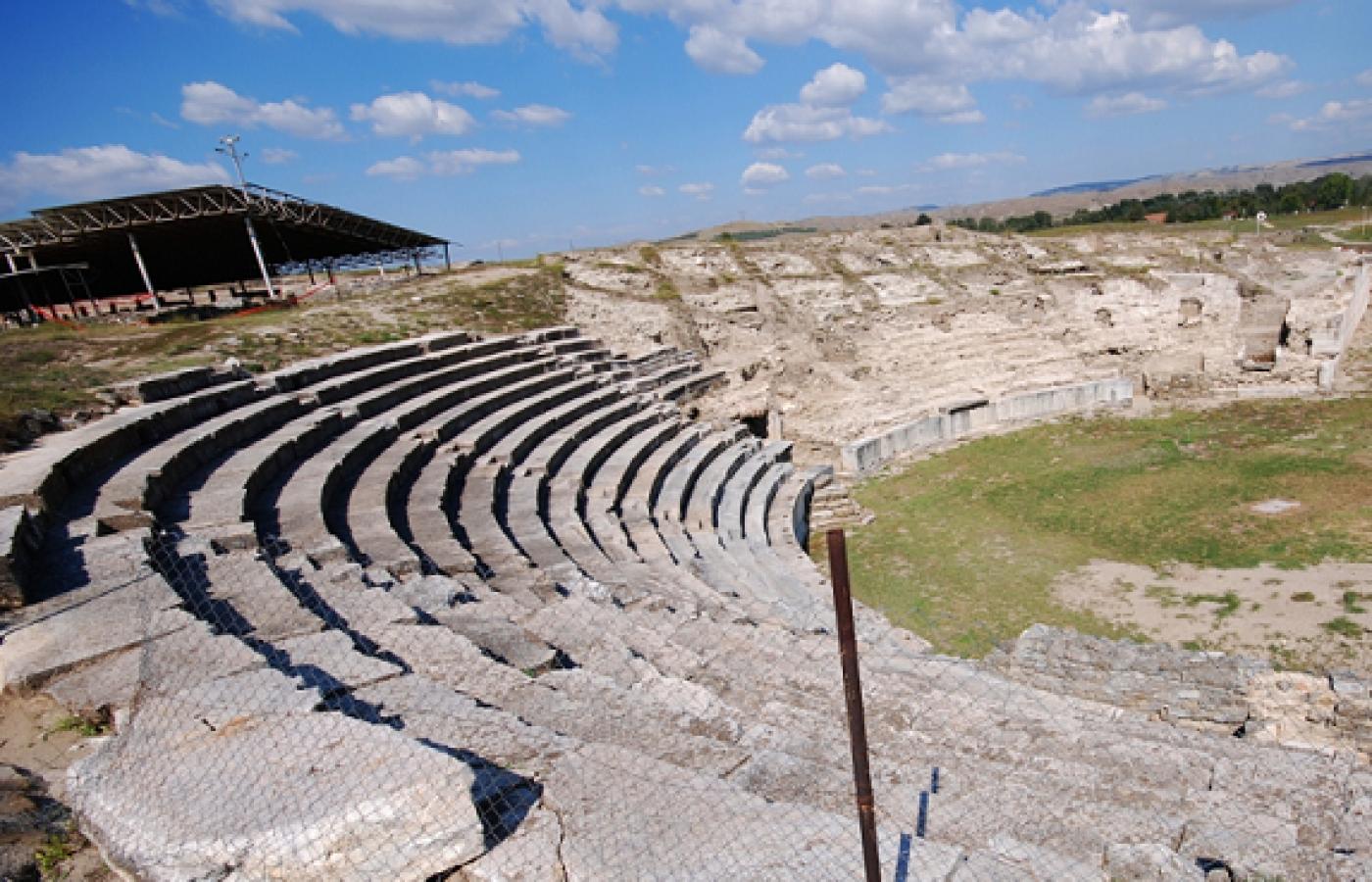
Stobi - Archaeological Site
Stobi or Stoboi (Ancient Greek: Στόβοι, romanized: Stóboi; Latin: Stobi; Macedonian: Стоби, romanized: Stobi), was an ancient town of Paeonia, later conquered by Macedon, and finally turned into the capital of the Roman province of Macedonia Salutaris. It is located near Gradsko, North Macedonia, on the main road that leads from the Danube to the Aegean Sea and is considered by many to be the most famous archaeological site in North Macedonia. Stobi was built where the Erigon (Crna River) joins the Axios (Vardar), making it strategically important as a center for both trade and warfare.
Stobi developed from a Paeonian settlement established in the Archaic period. Located on the northern side of a terrace, the early town covered an area of about 25,000 m2 (270,000 sq ft). Its proximity to the junction of the Erigón and Axiós Rivers as well as its position in the fertile central Vardar valley allowed it quickly to develop a flourishing economy and to establish trade. Nearby Mount Klepa was a lucrative source of marble. The initial Paeonian population was later supplemented by other immigrant groups. It is believed that in 217 BCE, Philip V annexed Paionia during his campaign against the Dardani who had entered Bylazora, the largest Paeonian town. The city was first mentioned in writing by the historian Livy, in connection with a victory of Philip V of Macedon over the Dardani in 197 BC. In 168 BC, the Romans defeated Perseus and Macedonia was divided into four nominally independent republics. In 148 BC, the four areas of Macedonia were brought together in a unified Roman province. In the reign of Augustus the city grew in size and population. The city grew further in 69 BC once it became a municipium, at which time it began to produce coins printed with Municipium Stobensium. The citizens of Stobi enjoyed Ius Italicum and were citizens of Rome. Most belonged to the Roman tribes Aemila and Tromentina. During Roman times Stobi was the capital of the Roman province Macedonia Salutaris. Emperor Theodosius I stayed in Stobi in 388. Late in the 5th century the city underwent a terrible turn of events. In 479, it was robbed by Theodoric, an Ostrogothic king. The citizens reconstructed the city, but in 518 it was struck by a powerful earthquake. Avaro-Slavic invasions in the 6th century destroyed the city's economy and infrastructure.





